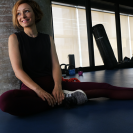Relationships are the source of our greatest pleasure and our greatest pain.Sitting here, looking across the sala at the female members of my family, I am overcome with gratitude for the fortuitous happenstance of my birth. This is the 15th year that my mother, sister, two sisters-in-law and I have gotten together for a weekend of …nothing. No plans, no agenda, no purpose except to spend time in each other’s company. We talk, drink a lot of coffee, try out new restaurants, talk, walk, laugh, cry, play games, and just hang out. These beloved women are fixtures in my life.
We need, and crave, relationships. All different kinds of relationships – friendships, family, lovers, partners and colleagues, each different connection enriches our lives, sharpens our intellect, fulfills our need for emotional intimacy, and helps create a sense of connectedness that contributes to the sense of Self we need to be mentally, physically and psychologically healthy.
This creates the same dilemma for everyone. Relationships are risky. Sometimes, they don’t work out. They begin, or become, dysfunctional, conflicted, painful or destructive. The very situation that we look to for support, encouragement, safety and companionship, becomes the source of distress in our lives.
This risk is inherent in every form of relationship. We may not choose our relatives, but this changes nothing of the truth about the risks and rewards. To have a relationship of choice go awry may feel like more of a betrayal than it does to experience conflict or dysfunction in the family; possibly we make mental allowances for difficult family members because we ‘inherited’ these connections through no choice of our own. The pain, however, of any rupture is the same.
We need close connections and relationships of varying degrees of intimacy to be healthy. These foundational connections create safe spaces where who we are and how we are is accepted, loved, nurtured, and held accountable to be the best Self we can be: authentic and real.
A wise old man once told me, “Love without truth is worthless; truth without love is ruthless.” Healthy relationships walk that fine line between love and truth, accepting that occasionally, more love is beneficial (it covers many transgressions), but other times, the unvarnished (but kindly spoken) truth is needed. Somewhere in the balanced middle is where we thrive the best.
When many of our relationships involve more hurt and wounding than nurturing and encouragement, and when that seems to be the habitual outcome, it may be a signal to stop and look at the Self we bring to the table. Sometimes, we are oblivious to the impact we have on others, sometimes we chronically misread social cues, sometimes we habitually “read” minds, or we unconsciously project our own inner landscape onto the Other, responding in conversation and behaving in ways that are inappropriate or dysfunctional. This typically has a profoundly negative impact on our opportunities to form the relationships we crave.
Self-reflection, talking with a trusted friend or therapist, and spending time identifying the thoughts, attitudes, and behaviours that are contributing to the negative outcomes can bring about a huge shift in the way our connections are formed and function.
Why is this important? Because the quality of our adult relationships profoundly impacts health, achievement, potential, and even length of life. If you don’t have two or three relationships in your life which are safe, nurturing, encouraging and positive of YOU as a unique individual, it’s worth taking the time to change that.
Take stock of the things that work (and the things that don’t) in current relationships. What needs to be different? What would make the relationship shift from ‘sort-of-okay’ to ‘brilliant?’ Who are the safe/nurturing people in your life? Why are they that way? What’s different about them, and by extension, their interactions with you? To stop and do an inventory for the sake of your future and long-term health is an investment in Self that will pay huge dividends in the long run.
If you have experienced the rewards of nurturing and encouraging relationships, take the time to say, “Thank you.” Cultivating a habit of gratitude is also a positive thing to do.
Dr. Susannah is a leading psychologist, registered professional counsellor and Master Practitioner in Clinical Counselling based in Canada. Follow @DrSusannah on Twitter and Instagram.











